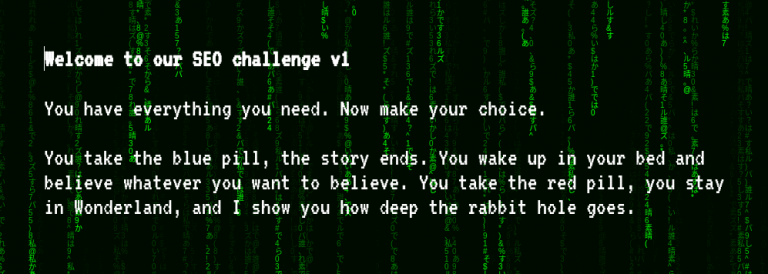Loneliness is a major public health issue, and young people are hit hardest
Journalist Theara Coleman in Week magazine announced 2023 is the “year of the loneliness epidemic.” In May, U.S. Surgeon General Vivek Murthy said loneliness was a public health risk on par with smoking and drinking.
“It’s like hunger or thirst,” said “Morty. It's the feeling our bodies send us when something we need to survive is missing.” Millions of people in America are living in the shadows, and it's not right.”
Our study coincides with Murthy's view: loneliness is a serious global public health problem.
The pandemic, of course, strengthened social isolation. Mental health has worsened, with research pointing to increased isolation as a major, if temporary, cause.
Young people have been hit particularly hard. The transition to adulthood means you move from the support of family to the support of peers. But online learning and the constant lack of contact significantly reduced for many, opportunities to develop these social networks and support networks.
As one Sheffield student, who enrolled just before England's second lock, put it: “I worry that because I [закончил] “University and school, I missed the best chances to make friends.”
But even before the pandemic, research showedthat young people experience higher rates of loneliness than the rest of the population.
How World Governments Began to Address Loneliness
In 2018, the UK government became the first in the world to make reducing loneliness an official parliamentary issue. Other countries, including Japan, have followed suit, creating ministerial positions to find solutions.
In 2023, the World Health Organization created a new Commission on Social Connection, calling loneliness an “urgent threat to global health” and social connection a global priority.
In 2018, the BBC conducted a global survey of 237 countries, islands and territories called the Loneliness Experiment. It found that young people experience loneliness more often than other age groups, a finding supported by studies in the US, New Zealand, Denmark and England.
In England, for example, the annual Public Life survey shows that between 2017 and 2022, 16-24 year olds were the most likely to feel lonely, followed by 25-34 year olds, but for the latter, the figures have remained relatively stable over the five years.
However, for the younger group, the figures rose by two percentage points, from 8% feeling often or always lonely in 2017-18 to 10% in 2021-22. The study suggests that loneliness has a U-shaped trajectory. It is generally most common among younger people, declines in middle age, and then starts to rise again among those over 75. While the pandemic has seen a rise inloneliness in isolation“For younger people, these trends toward high levels of loneliness were already evident before the lockdown.
What is loneliness?
Research There are three types of loneliness: emotional loneliness, social loneliness and existential loneliness.
Emotional loneliness is associated with a perceived lack of meaningful relationships, including intimate connections.
Social loneliness is the feeling that your social network is somehow insufficient. It is a subjective feeling — a personal assessment — of the gap between how much social contact we want and how much we actually have. In other words, you can have lots of friends but still feel lonely.
Existential loneliness, meanwhile, centers on a perceived disconnection from society at large. It’s the feeling that your life has no meaning or purpose, regardless of whether you have friends or intimate relationships.
Sometimes we experience loneliness as temporary the result of a specific situation is an imbalance that can be corrected. It is more worrisome when it is chronic.
Nobody wants to feel lonely. It's a feeling causes suffering. It affects our mental health in general. Ours also suffers physical health: deterioration of health, unhealthy lifestyle, increase in chronic diseases, increased cholesterol levels and diabetes.
However, as shown researcheven older people report in retrospect that they felt lonelier when they were younger. So what is it like to be young?
Adolescence and early adulthood are typically unpredictable times, periods of uncertainty and transition. Puberty and education, becoming an adult, entering the workforce, not to mention finding a partner and starting a family, all involve difficult and potentially risky decisions that can increase loneliness.
Risk and complexity are not limited to the personal level. At this stage in life, you are also potentially at greater risk of loneliness due to societal forces beyond your control.
Social media use over the past decade has been found to impact the quality of our relationships. Young people are also more likely to work in the gig economy, which increases uncertainty and lack of control over work. The inability to build relationships at work in the way that you might in a more stable work environment can lead to further isolation.
The double cost of living and housing crisis have also hit young workers the hardest. They can also impact decisions about where to live and whether to start a family, which can lead to feelings of existential loneliness.
When the world seems scary and unpredictable, it’s no wonder that young people feel lonely. When you feel like you’re getting lonely, it’s important to reach out for help.
However, sometimes it feels harder than it should, perhaps because of the mistaken belief that loneliness is something that older people suffer from, not younger people. Often, you feel ashamed or afraid that you will be ridiculed or blamed for feeling this way. You may worry that by talking about it, you will burden your friends. Which, of course, only makes the loneliness you felt in the first place worse.
This is why it is so important that society recognizes loneliness as an epidemic and not a personal shortcoming. The social prescription is now accepted by the health and social care system. This means that no one is alone in their feelings. Loneliness can only be overcome together.




